Mental Health
30 Things You Won’t Need Anymore Once You Retire
Published
2 months agoon

Shutterstock
Retirement marks a significant transition in life, shifting from the routine of working days to a period focused on leisure, personal pursuits, and perhaps some well-deserved relaxation. This change often means that many items and habits that were once indispensable during your working years suddenly lose their relevance. Here’s a look at 30 things that, while crucial during the throes of employment, become instantly useless once you retire.
Alarm Clocks for Early Mornings

The reliance on alarm clocks to disrupt your sleep and signal the start of another workday becomes obsolete in retirement. Without the pressure to adhere to a strict morning routine, you can embrace the luxury of waking up naturally, according to your body’s own rhythm. This change not only enhances your quality of sleep but also introduces a more relaxed pace to your mornings, allowing you to start your day on a more peaceful and unhurried note.
Work Clothes

Shutterstock
Retirement marks the transition from a wardrobe dominated by professional attire to one that favors comfort and personal expression. The shelves once filled with suits, dress shirts, and formal shoes now make way for casual wear that suits your retired lifestyle, whether that involves leisure activities, hobbies, or simply relaxing at home. This shift not only signifies a change in daily routines but also a deeper transformation in identity, moving away from professional roles to embrace more personal and leisure-focused aspects of life.
Second Car

Shutterstock
The logistical necessity of a second vehicle fades with retirement, as the daily commute and work-related travel are no longer factors. This can lead to a reevaluation of transportation needs, potentially resulting in significant savings on insurance, maintenance, and other associated costs. Furthermore, consolidating to one vehicle encourages more efficient planning of outings, reducing environmental impact, and fostering closer coordination within households about travel plans and needs.
Old Kitchen Gadgets

Retirement offers the perfect opportunity to reassess the clutter in your kitchen, particularly gadgets that have become obsolete or seldom used. Clearing out these items not only frees up space but also paves the way for a kitchen that better suits your current lifestyle and culinary interests. Whether you’re exploring new recipes, entertaining friends, or simply enjoying the art of cooking at a more leisurely pace, streamlining your kitchen gadgets can rejuvenate your cooking experience and align it with your newfound freedom.
Leadership Books and Career Advancement Materials
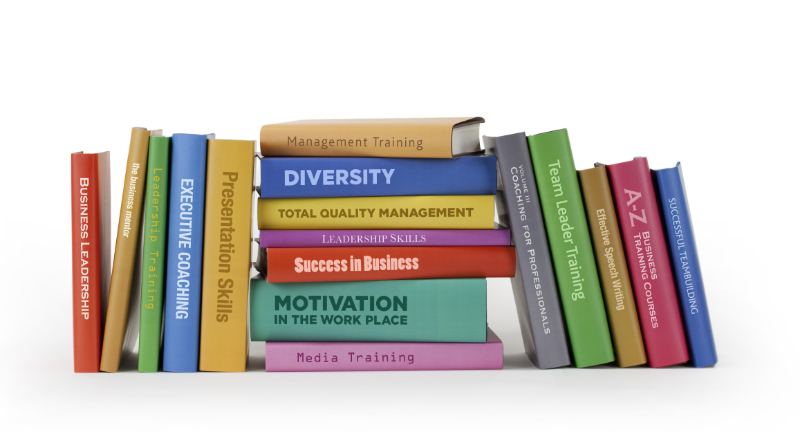
Shutterstock
As the focus shifts from professional growth to personal enrichment, the stacks of leadership books and career materials that once held prime real estate on your shelves may no longer serve a purpose. Donating these resources can not only declutter your living space but also provide others with the opportunity to benefit from their wisdom. Meanwhile, you can redirect your reading habits towards subjects that captivate your interests, whether that’s literature, history, hobbies, or any other field that enriches your retired life.
Transportation Passes and Commuter Essentials
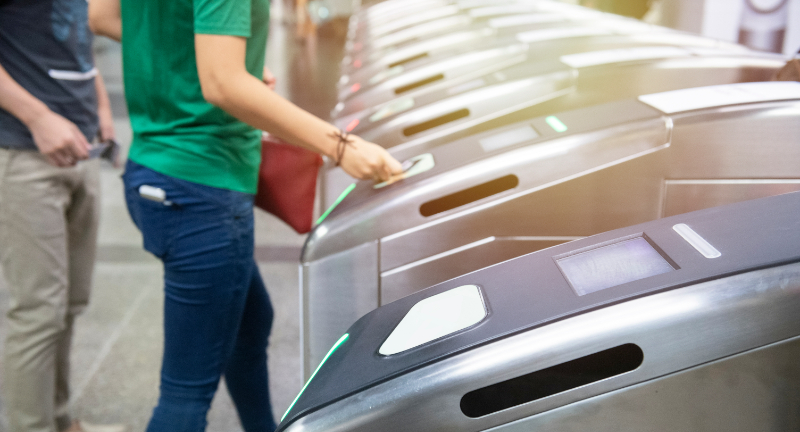
Shutterstock
With the end of the daily commute, items like monthly transit passes, parking permits, and other commuter essentials quickly lose their utility. This shift away from structured work travel opens up new possibilities for exploring your surroundings at a more relaxed pace, whether that means enjoying off-peak travel, discovering new destinations, or simply taking the time to appreciate the journey without the rush. The savings and flexibility gained from this change can significantly enhance the enjoyment of your retirement.
Kids’ Outgrown Items

Shutterstock
The transition into retirement can also be a time to tackle long-postponed tasks, such as sorting through and parting with your children’s outgrown items. This process of decluttering can be emotionally rewarding and liberating, creating more space in your home for new hobbies and interests. Moreover, donating these items extends their usefulness and brings joy to others, while also symbolizing the passing of time and the start of a new chapter in your life.
Business Travel Items

Shutterstock
The assortment of items once essential for smoothing the rigors of business travel – compact luggage, quick-dry clothing, and travel tech – finds a new purpose or becomes redundant in retirement. Travel now becomes an avenue for exploration and leisure, untethered from the constraints of work schedules and objectives. This allows for a more thoughtful selection of travel gear that enhances comfort and enjoyment, reflecting a shift towards experiencing travel as a pleasure rather than a necessity.
Sorting Out Your Storage Unit
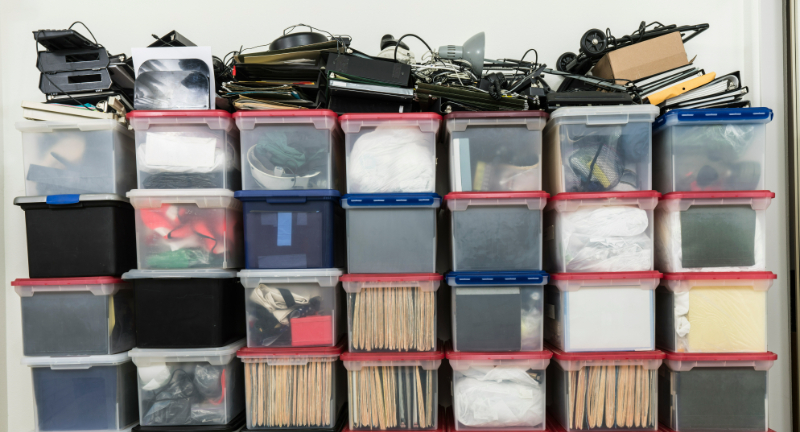
Shutterstock
Retirement provides the time and impetus needed to tackle the daunting task of decluttering storage units. This endeavor not only clears physical space but also emotional clutter, marking the end of one life stage and the beginning of another. The decision of what to keep, donate, or discard can reflect your current values and interests, helping to realign your surroundings with your retired lifestyle and priorities. This process can also unearth forgotten treasures, bringing back memories and offering a chance to reminisce and share stories with loved ones.
Spare Sets of Tableware
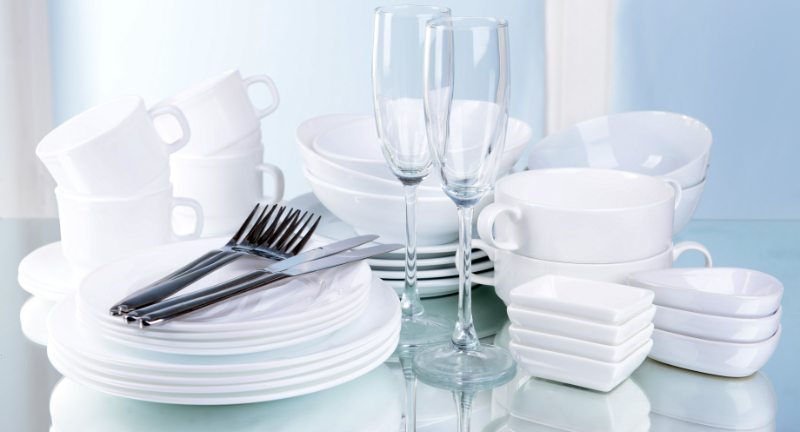
Shutterstock
Retirement offers a moment to simplify your possessions, including reassessing the need for multiple sets of tableware that were once reserved for special occasions or entertaining large groups. Reducing your collection to pieces that you truly love and use not only declutters your home but also makes everyday meals more special. This simplification process encourages a more intentional living space that reflects your current lifestyle, making meals and gatherings more about the company and less about the presentation.
Debt

Shutterstock
Heading into retirement with a plan to reduce or eliminate debt can significantly alleviate financial stress, allowing for a more secure and enjoyable retired life. This proactive approach to managing finances ensures that your retirement savings can be dedicated to fulfilling experiences, hobbies, and travel, rather than servicing debt. Achieving financial freedom during retirement not only offers peace of mind but also opens up a world of possibilities for how you spend your time, without the burden of financial obligations hanging over you.
Household Items No Longer Needed
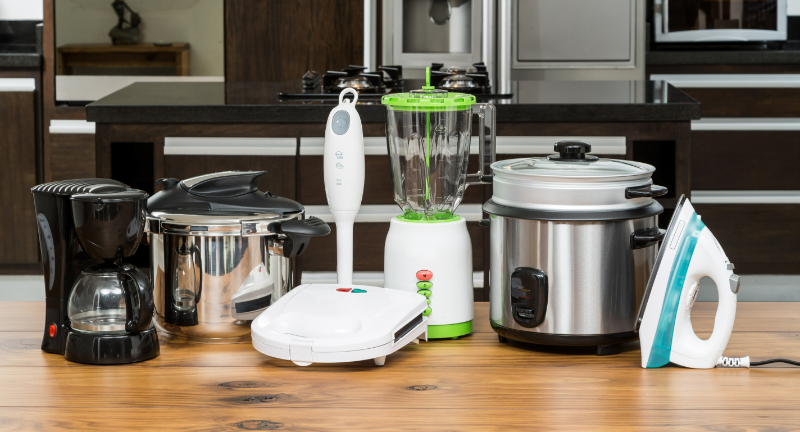
Shutterstock
The shift into retirement is an opportune time to reevaluate the accumulation of household items, from furniture that no longer fits your space to decorative pieces that no longer reflect your taste. This process of decluttering and reorganizing can breathe new life into your home, making it a more comfortable and inviting space that suits your retired lifestyle. Whether it’s repurposing a room for a new hobby or simply creating a more open and welcoming environment, reducing clutter can have a transformative effect on your living space and well-being.
Life Insurance Policies

Shutterstock
Retirement is a critical time to review your financial products, including life insurance policies, to ensure they align with your current needs and lifestyle. Changes in dependents, financial obligations, and personal priorities can affect the type and amount of coverage you need. Adjusting or eliminating unnecessary policies can free up financial resources for other retirement goals, ensuring that your insurance coverage is cost-effective and tailored to your retired life.
Expensive Gym Memberships

Shutterstock
The flexibility of retirement allows for a reevaluation of how and where you prefer to stay active. Expensive gym memberships, once necessary for convenience and schedule, may no longer be the best fit. Opting for outdoor activities, community fitness classes, or at-home exercise routines can provide more enjoyment and social interaction at a fraction of the cost. This shift not only saves money but also encourages a more personalized and enjoyable approach to maintaining health and fitness in retirement.
Outdated Media
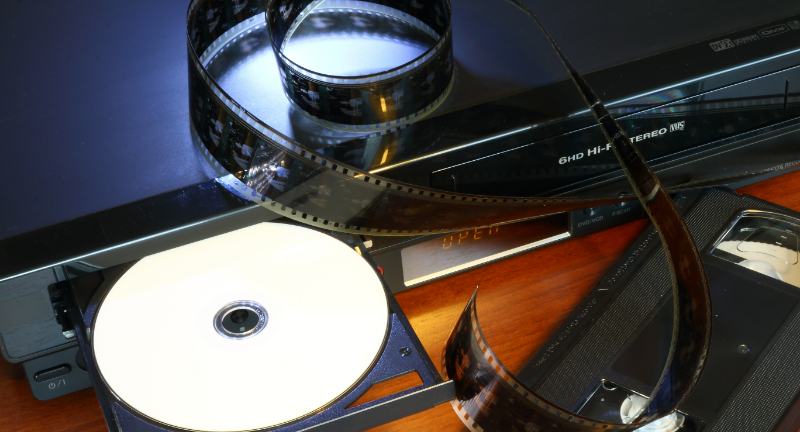
Shutterstock
Retirement provides the perfect opportunity to sort through collections of outdated media, making decisions about what to keep, digitize, or let go. This process can be both nostalgic and practical, as it frees up physical space and modernizes your entertainment options. Digitizing favorite albums, movies, and photos preserves them for future enjoyment and sharing, while donating or recycling physical copies can declutter your home and contribute to a more streamlined, modern living environment.
Stored Payment Information for Work-Related Subscriptions

Shutterstock
Reviewing and updating stored payment information for subscriptions and services that are no longer relevant can streamline your finances and protect against unwanted charges. This cleanup extends beyond financial hygiene; it’s about aligning your spending with your current interests and priorities. The process encourages a thoughtful consideration of which services truly add value to your retired life, ensuring that your financial resources are directed towards activities and subscriptions that enhance your quality of life.
Old Sports Equipment

Shutterstock
Retirement is an excellent time to reevaluate old sports equipment, deciding what still fits your lifestyle and physical capabilities. Upgrading or donating outdated or unused equipment can not only free up space but also inspire you to engage in new or favorite activities that match your current fitness level and interests. This refresh can rekindle a passion for physical activity, providing both physical and mental health benefits and offering opportunities for social interaction and outdoor exploration.
Office Keycards and IDs
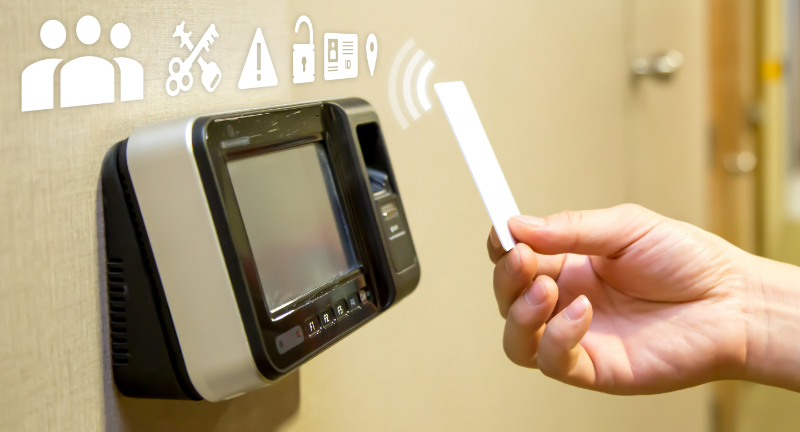
Shutterstock
Turning in your office keycards and IDs is a symbolic moment that signifies the end of your professional career and the beginning of your retirement journey. This act not only marks your transition from the working world but also signifies a shift in how you identify yourself, moving away from professional roles to embrace a broader identity based on personal interests, relationships, and activities. It’s a step towards redefining your sense of purpose and exploring new opportunities for growth and enjoyment in retirement.
Professional Networking Memberships

Shutterstock
As the drive for career advancement wanes, the value of professional networking memberships and events diminishes. Redirecting time and resources towards social groups and activities that reflect personal interests and passions can lead to more fulfilling and rewarding connections. Retirement offers a chance to build a community based on shared hobbies, cultural interests, or volunteer work, enriching your social life and providing a sense of belonging and purpose outside of professional achievements.
Work Email and Communication Apps
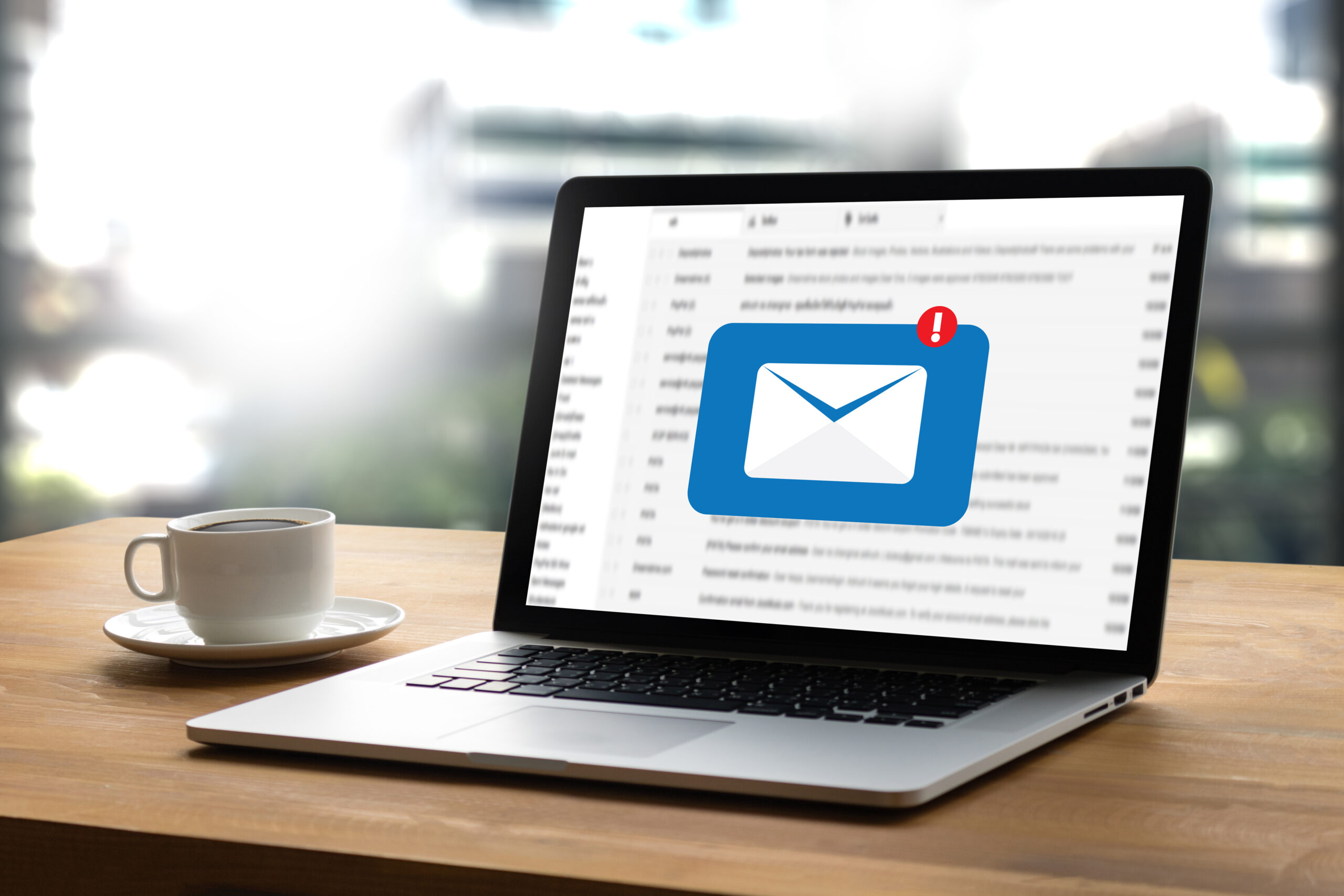
Shutterstock
Disconnecting from work emails and communication apps signifies a significant shift from being constantly available for work-related matters to embracing a more relaxed and autonomous lifestyle. This transition allows for a deeper engagement with personal interests and relationships, unencumbered by the need to respond to professional demands. It marks a reclaiming of your time and attention, opening up space for more meaningful and fulfilling activities that enhance your retired life.
Task Management Software

Shutterstock
In retirement, the intricate systems and software once relied upon for managing projects and deadlines lose their utility. Instead, you may find yourself turning to simpler, more intuitive methods of organizing your day-to-day activities that cater to personal projects, hobbies, and leisure activities. This shift reflects a broader move away from the structured, productivity-focused mindset of work life towards a more relaxed, flexible approach to how you spend your time.
Performance Review Documents

Shutterstock
The folders and files filled with goals, feedback, and evaluations from past performance reviews quickly become artifacts of a bygone era. In retirement, the metrics for success shift dramatically, with personal fulfillment, relationships, and hobbies taking precedence over professional achievements. This transition can be deeply liberating, allowing you to define your own goals and measure success by the joy and satisfaction they bring, rather than external validation.
Business Cards

Shutterstock
Once a necessary tool for networking and making professional connections, business cards become a relic of the past in retirement. Social interactions become less about leveraging professional relationships and more about building genuine personal connections based on shared interests and experiences. This change not only reflects a shift in how you engage with others but also signifies a broader transition from a professional identity to one that is more holistic and personally fulfilling.
Numerous Family Heirlooms
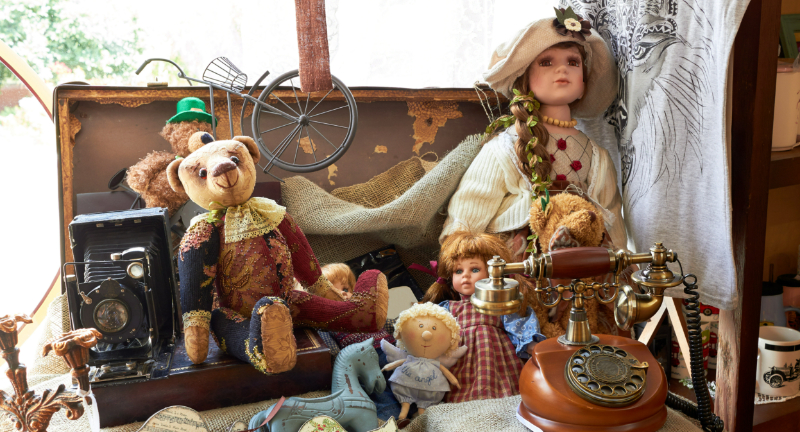
The heirloom furniture, treasured books, and fine tablecloths handed down through generations might seem like coveted items for your children or grandchildren. Yet, there might also be interest from consignment stores or collectors in such pieces. Consider taking photos and investigating who might appreciate these treasures. If there’s little interest, donating to a charity shop can offer help to those in need. It’s important to recognize that younger generations have different tastes and to avoid making your children feel guilty.
Workshops and Seminars for Professional Growth

Shutterstock
The focus on attending workshops and seminars for career advancement fades, making way for learning opportunities that align with personal interests and passions. Whether it’s taking up a new hobby, mastering a skill for pleasure, or simply expanding your knowledge on subjects of personal interest, retirement offers the freedom to learn for the joy of learning, unencumbered by professional development goals.
Second Phone or Business Line

Shutterstock
Maintaining a separate phone or line for business communications becomes unnecessary, allowing you to streamline your communications onto a single, personal device. This simplification not only reduces expenses but also minimizes the mental clutter of juggling multiple numbers and devices, making it easier to stay connected with friends and family without the intrusion of work calls and messages.
Expensive Work Lunches

Shutterstock
The habit of frequent, expensive lunches out during the workweek gives way to the pleasures of preparing meals at home or enjoying relaxed, leisurely lunches without the constraints of a work schedule. This shift can lead to healthier eating habits, more meaningful social interactions over meals, and significant savings, enhancing the overall quality of life in retirement.
Out-of-Office Messages
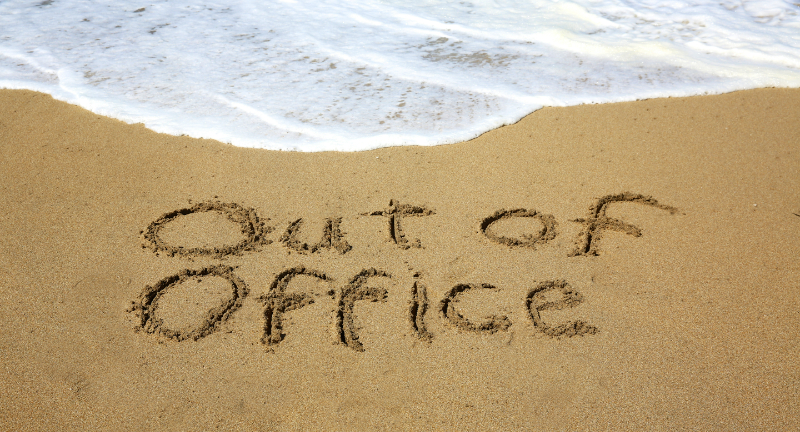
Shutterstock
Setting up out-of-office replies becomes a thing of the past, as every day offers the freedom to engage with the world on your own terms. Whether you choose to travel, pursue hobbies, or simply enjoy the peace of your home, the concept of being “out of office” takes on a new, more permanent meaning, reflecting the boundless potential of your retired life.
Corporate Gifts and Awards

Items that once symbolized achievement and status within the corporate world, such as plaques, trophies, and engraved pens, may no longer resonate with your retired identity. While these items may hold sentimental value, repurposing or respectfully storing them allows you to make room for symbols and mementos that reflect your current interests and achievements, marking a shift towards a life defined by personal values and fulfillment.
Commuter Cups and Lunch Boxes
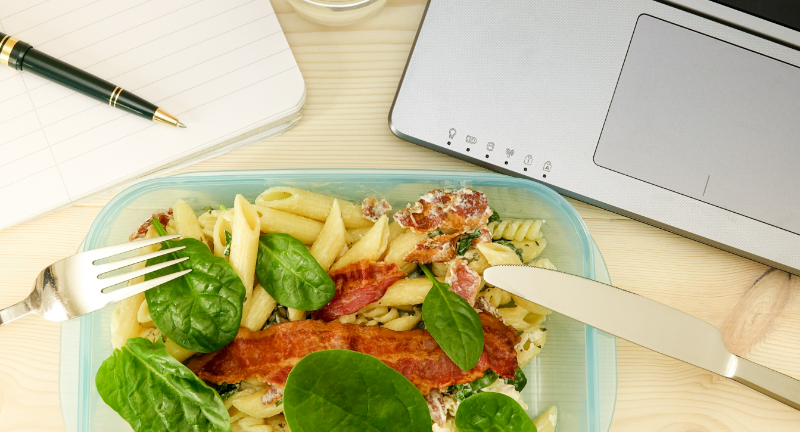
Shutterstock
With no daily rush to the office, the need for on-the-go meal containers and coffee cups diminishes, favoring more leisurely at-home options or café visits. Retirement allows for a more leisurely pace to your meals and coffee breaks, offering the opportunity to dine at home or enjoy local cafés and restaurants without the time constraints of a work schedule, enhancing the daily pleasures of your retired life.
Conclusion

shutterstock
Retirement ushers in a new chapter of life where the focus shifts from professional obligations to personal fulfillment and relaxation. The items and habits that once defined our daily work lives become quaint reminders of a previous chapter. As we navigate this transition, the process of identifying and letting go of these now-useless items can be both liberating and nostalgic, opening up space for new interests, activities, and ways of living that are more in tune with our retired selves. It’s a time to embrace change, explore new passions, and enjoy the fruits of years of hard work with the freedom and flexibility that retirement affords.








